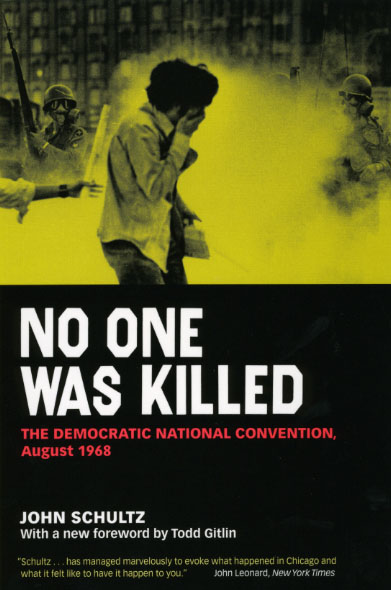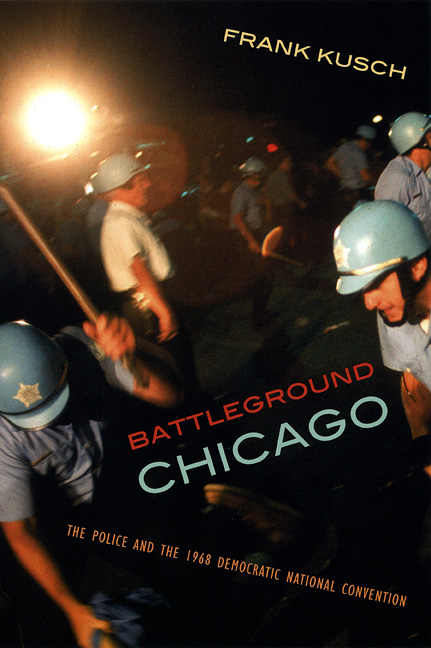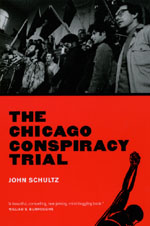Chicago 1968 >>>>>>>> Chicago 2012
INTRODUCTION
We choose our aphorisms wisely. George Santayana cautioned us against our doom in repeating the past and we pushed it to the point of cliché. Let’s incant with Karl Kraus, instead.
“The ugliness of our time has retroactive force.”
BODIES
This coming weekend brings the 2012 North Atlantic Treaty Organization’s (NATO) twenty-fifth anniversary summit to Chicago, exactly almost a half-century after we hosted the 1968 Democratic National Convention. We’ve traded Daleys for Rahm; our police force is run by a former football player instead of a former army provost-marshall; and the odds of inadvertently thwacking Dan Rather in the stomach have been significantly reduced by his retirement from network television—
According to NATO’s website, the organization has a threefold focus for their meeting:
- the Alliance’s commitment to Afghanistan through transition and beyond;
- ensuring the Alliance has the capabilities it needs to defend its population and territory and to deal with the challenges of the 21st century; and
- strengthening NATO’s network of partners across the globe.
According to the Nation, Occupy Chicago’s social network and media feeds, and Timeout Chicago, those protestors native to Chicago and in town for anti-NATO demonstrations have prepared for dialogue and protests surrounding the summit with a $10,000 People’s Law Office kickstarter for anticipated bail needs; organized details for formal marches like those coordinated by Iraq and Afghanistan war veterans and Andy Thayer and the Coalition Against NATO/G8 War & Poverty Agenda; and instituted a hopeful ten-day plan of direct action, including a march on Boeing.
The city of Chicago has recently spent $757,657 retro-fitting police helmets with face-shields and ear and neck protectors, in addition to securing the use of LRAD sound-cannons (the Daily Kos has demo footage).
HISTORY FEEDS THE PRESENT
Dean Blobaum’s site Chicago ’68 chronicles the now-familiar events of that August, including this chronology of related events before and that summer, beginning with the August 1967 “Dump Johnson” movement and ending with April 1975 final withdrawal of troops from Vietnam. The iconic footage of clashes between the police and Convention protestors is readily available on the internet (and cautiously framed by video released this week of early encounters between Chicago police and NATO demonstrators), serving as a comparative frame for the last time the city found itself as host to a political meeting capable of inspiring largescale social unrest and counterprotests. Though it’s difficult to not immediately notice parallels (and to be fair—some valid differences) between the events of 1968 and circumstances and conditions surrounding the present NATO summit, the documentation and analyzes published in the wake of 1968 grapple with some serious particulars—from from the tenuous political transformation of conservative white working-class Chicago and its effect on Daley’s police force to the judicial inconsistencies in the trials that followed indited “conspirators” from that summer’s planned protests. Reading up on the events certainly prepares us to better understand what’s at stake—historically— for all those involved in the weekend to come.
REQUIRED READING
 No One Was Killed: The Democratic National Convention, 1968 by John Schultz provides a first-hand account of the events as they unfolded by Schultz, now a professor emeritus and former chair of fiction writing at Chicago’s Columbia College—then a young writer and participant-observer of the convention week.
No One Was Killed: The Democratic National Convention, 1968 by John Schultz provides a first-hand account of the events as they unfolded by Schultz, now a professor emeritus and former chair of fiction writing at Chicago’s Columbia College—then a young writer and participant-observer of the convention week.
“John Schultz, in No One Was Killed, has managed marvelously to evoke what happened in Chicago and what it felt like to have it happen to you.”—John Leonard, New York Times

Battleground Chicago: The Police and the 1968 Democratic National Convention by Frank Kusch employs interviews with 80 police veterans to reevaluate exactly how—and why—the police attacked antiwar activists at the convention, helping to broaden our understanding of the conservative white working-class’s response to events.
“A fascinating story unfolds, of family-oriented cops recruited from white ethnic communities confronting middle-class ‘longhairs;’ of both the police and the activists able to perceive one another only as stereotypes … of the cumulative and destructive mutual antipathy between police and press.”—History

Chicago ’68 by David Farber draws on unprecedented archival sources to retell the story of the Convention from three separate perspectives: the Yippies, the National Mobilization to End the War, and Mayor Richard J. Daley and his police.
“Chicago ’68 was a watershed summer. Chicago ’68 is a watershed book. Farber succeeds in presenting a sensitive, fairminded composite portrait that is at once a model of fine narrative history and an example of how one can walk the intellectual tightrope between ‘reporting one’s findings’ and offering judgements about them.”—Peter I. Rose, Contemporary Sociology

The Chicago Conspiracy Trial, also by John Schultz is a vivid account of the raw emotions and judicial corruption that came to define one of the most significant legal events in American history, articulated first-hand by Schultz, who covered the trial for the Evergeen Review.
“If Schultz has offered us a drama that is a metaphor for this society itself, then his intensive concern with the jurors and their own special agony is its climax. His probe into their consciences—the play within the play—is a probe into the American conscience.”—David Graber, Los Angeles Times
IN SPIRIT
Studs Terkel (1912–2008), legendary oral historian, broadcaster, author (WPA-sponsored writer), citizen-journalist, and notable Chicagoan would have turned 100 years old tomorrow, just days before the NATO summit begins. Fitting somehow? “Curiosity never killed this cat,” was the epitaph he suggested for himself.
“Logistically, practically, spiritually, poetically, in every way, Chicago has to be the city for the 1968 Democratic convention,” Terkel ominously remarked just days before the ’68 Convention began (weeks later serving as “Our Man in Chicago” during Haskell Wexler’s cinéma vérité-syle documentary of events Medium Cool). We wonder what he would say today (Happy birthday, Studs).
